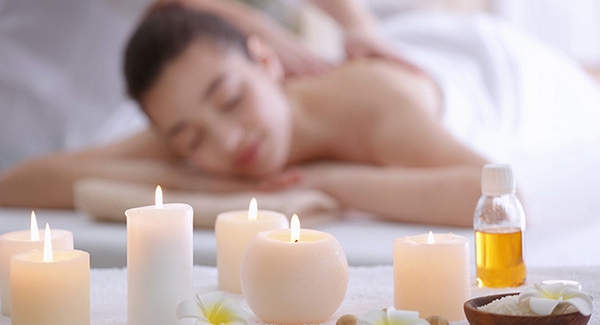Acupuncture Near You
Find Acupuncture treatments Near You!
Acupuncture, a practice rooted in the ancient traditions of Traditional Chinese Medicine, offers a unique approach to enhancing overall health and well-being. This article explores the fundamentals of acupuncture, its effects on the body, and the range of conditions it can address. Understanding the principles behind acupuncture and considering certain factors when opting for this therapy is crucial.
The Essence of Acupuncture
Acupuncture involves the insertion of thin, solid, metallic needles into specific points on the body. These needles are then activated through the gentle and precise movements of the practitioner’s hands or electrical stimulation. This practice is deeply ingrained in Traditional Chinese Medicine, which maintains that the human body has over 2,000 acupuncture points connected by pathways or meridians. These meridians facilitate the flow of vital energy called “Qi” and are believed to be key to overall health. Disruptions in this energy flow are thought to be the root cause of many illnesses. By applying acupuncture to specific points, practitioners aim to restore the flow of Qi, promoting better health.
The Sensation and Techniques
Acupuncture employs hair-thin needles; most individuals report minimal pain during insertion. The sensation is often described as a slight pressure or ache at the needle’s location. Some variations of acupuncture involve heating the needles or applying mild electric currents. Reactions to acupuncture can vary, with some people feeling energized and others experiencing deep relaxation.
Improper needle placement can cause discomfort; sterile needles are critical to prevent infection. This is why selecting a qualified and certified acupuncture practitioner is essential. The FDA regulates acupuncture needles in the United States as medical devices, ensuring compliance with good manufacturing practices and single-use sterility standards.
Beyond traditional needling, acupuncture may also involve alternative stimulation methods, such as heat (moxibustion), pressure (acupressure), friction, suction (cupping), or electromagnetic energy impulses.
Understanding How Acupuncture Affects the Body
Acupuncture points are believed to stimulate the central nervous system, releasing biochemical substances into the muscles, spinal cord, and brain. These biochemical changes may trigger the body’s natural healing processes, enhancing physical and emotional well-being.
Research from the National Institutes of Health (NIH) has shown that acupuncture can be effective as a standalone treatment or combined with conventional therapies for various conditions, including:
- Nausea caused by surgical anesthesia and cancer chemotherapy
- Osteoarthritis
- Low back pain
- Carpal tunnel syndrome
- Asthma
- Dental pain after surgery
- Addiction
- Menstrual cramps
- Tennis elbow
- Fibromyalgia
- Myofascial pain
- Headaches
Acupuncture has also shown potential benefits for stroke rehabilitation.
Considerations for Acupuncture
Acupuncture is still under scientific study in Western medicine, so it’s essential to approach it cautiously:
Consult your doctor before trying acupuncture, especially if you have a medical condition or are on medications. Provide your acupuncture practitioner with complete details about your health.
Avoid relying solely on an acupuncture practitioner for a diagnosis. If you have a medical diagnosis, consult your doctor to determine whether acupuncture can complement your treatment.
Select a licensed acupuncture practitioner with proper training and credentials. Trusted sources, such as healthcare providers, friends, and family, can provide valuable recommendations. While not all states require licensure, approximately 30 states in the U.S. have established training standards for certification.
Consider the costs and insurance coverage of acupuncture. Ask about the number of sessions required and their costs before beginning treatment. Some insurance plans cover acupuncture, but others may not.

Summary
Acupuncture is a holistic practice that promotes natural healing processes and well-being by addressing the body’s energy flow. While scientific understanding continues to develop, acupuncture has effectively managed various health concerns. When considering acupuncture, prioritize open communication with your healthcare provider, choose a qualified practitioner, and explore potential insurance coverage. Acupuncture can be a transformative step toward achieving better balance and health.
Final Note from Massages Me
Step into our digital haven, where massage therapists and spas from around the world await. Immerse yourself in therapeutic healing with a wide range of professionals to suit your needs. Whether you prefer the strong, confident touch of male massage therapists or the nurturing care of female therapists, our platform caters to your preferences.
For those who prefer relaxation in the comfort of their home, our platform connects you with mobile massage therapists who bring healing and tranquility to your doorstep. Wellness is a personal journey, and our platform is a comprehensive resource to explore your options. Whether you desire a luxurious spa experience or an in-home escape, we link you with top-notch experts and facilities dedicated to your relaxation and rejuvenation.
Related Massage Treatments
Acupressure Acupuncture Aromatherapy Couples Massage Cupping Therapy Deep Tissue Massage Foot Massage Hot Stone Massage Lomilomi Massage Lymphatic Drainage Myofascial Release Pregnancy Massage Reflexology Back Massage Relaxing Massage Shiatsu Massage Swedish Massage Thai Massage Trigger Point Therapy 4 Hands Massage Sports Massage Chinese Massage PhysiotherapyNearby Cities for Acupuncture
Marigot, Port Louis, Moroni, Torshavn, Castries, Ngerulmud, Port of Spain, Harare, Pristina, The Valley, Sri Jayewardenepura Kotte, Lilongwe, Sarajevo, Lima, Antananarivo, Oranjestad, Hanoi, Bratislava, Ljubljana, Kingston, Jamestown, Stockholm, Vilnius, Longyearbyen, Gustavia, Phnom Penh, Vienna, Thimphu, Kuwait City, Canberra, San Salvador, Charlotte Amalie, Alofi, Santiago, Bujumbura, Bloemfontein, Gaborone, Tirana, Suva, Maseru,Advertise with Massages Me and Grow Your Business!
Create an Ad within minutes & increase your earning potential as we connect you with more clients!